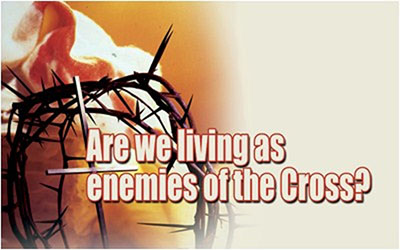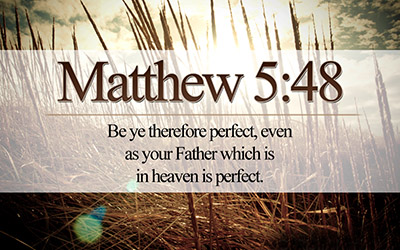The Narrow Path - Con Đường Hẹp
Is the path narrow because of the difficulty or sacrifice it asks of its followers? Or it is only so because of the very narrowness of its definition? (Phải chăng đường hẹp vì những khó khăn và hy sinh mà người theo phải chịu? Hoặc chỉ là hẹp về định nghĩa của nó?)
A quick troduction - Lời giới thiệu ngắn

An article under the same title was written by me, Nghi Nguyen, around the end of 2016, but this one is actually written by Ngô Vui who by the grace of God had come onto the same path to explore the incredible inheritance reserved for those who are in Christ. Enjoy. (Tôi, Nghị Nguyễn, đã viết một bài với cùng tựa đề vào khoảng cuối năm 2016, nhưng bài này đã được viết bởi anh Ngô Vui, người mà bởi ân điển Chúa đã trở nên bạn đồng hành để khám phá cơ nghiệp diệu kỳ mà Chúa đã dành sẵn cho những kẻ ở trong Ngài. Xin mời bạn đọc cùng thưởng thức)
The Narrow Path - Con Đường Hẹp
Jesus said: “Then you will know the truth, and the truth will set you free ( Chúa Giê-su phán: Khi các ngươi hiểu được sự thật, thì sự thật sẽ giải phóng các ngươi - John 8:32).
Before Jesus went on the cross, he spent 3 years to explain to the Israelites the true purpose of God’s law. For example, when he said (Trước khi lên thập tự, Chúa Giê-su đã tốn 3 năm với người Do-thái để làm sáng tỏ ý nghĩa của luật pháp Đức Chúa Trời. Ví dụ khi Ngài phán):
You have heard that it was said to the people long ago, ‘You shall not murder, and anyone who murders will be subject to judgment.’ But I tell you that anyone who is angry with a brother or sister will be subject to judgment (Luật pháp Môi-se dạy chớ giết người, nhưng ta bảo các ngươi nếu ai ghét anh em mình thì đã phạm tội ấy - Matthew 5:21 -22).
You have heard that it was said, ‘Love your neighbor and hate your enemy.’ But I tell you, love your enemies and pray for those who persecute you (Các ngươi có nghe lời phán rằng: Hãy yêu bạn, ghét thù. Nhưng ta bảo các ngươi hãy yêu kẻ thù nghịch, và cầu nguyện cho kẻ bắt bớ các ngươi - Matthew 5:43-44).
Do not judge, or you too will be judged (Đừng đoán xét người khác, để khỏi bị đoán xét - Matthew 7:1).
Do to others as you would have them do to you (Các ngươi muốn người ta làm cho mình thể nào, hãy làm cho người ta thể ấy - Luke 6:31).
Be perfect, therefore, as your heavenly Father is perfect (Các ngươi hãy nên trọn vẹn, như Cha các ngươi ở trên trời là trọn vẹn - Matthew 5:48).
And many other things in the similar vein which forces the hearers to ponder within themselves: Who can escape sins? (Và Ngài cũng phán nhiều điều khác nữa, khiến người nghe không khỏi tự hỏi trong lòng mình: Vậy thì ai thoát được tội?)
Surely, from the beginning of time, mankind knew that God’s law was good and holy. But they consistently failed in all their efforts to reach perfection; efforts that were based on obedience to the requirements of the law (Thật vậy, từ buổi ban đầu, nhân loại vốn nhận biết luật pháp Đức Chúa Trời là thiêng liêng và tốt lành. Thế nhưng, họ luôn luôn thất bại trong những nỗ lực đạt đến sự toàn thiện, những nỗ lực đặt nền tảng trên sự làm trọn các sự đòi hỏi của luật pháp).
God already knew this since before creation. Therefore, He preordained a way to lead man to eternal life, a way that Jesus called “the narrow path” (Chúa đã biết điều này từ trước khi sáng thế. Do đó, Ngài đã sắm sẵn một con đường đưa nhân loại đến sự sống đời đời, con đường mà Ngài gọi là “hẹp” - Matthew 7:13-14).
What do Scriptures say about “The Narrow Path?” (Kinh thánh nói gì về “Con Đường Hẹp?”):
But in these last days he has spoken to us by his Son, whom he appointed heir of all things, and through whom also he made the universe (Bởi Con [là Chúa Giê-su] mà Đức Chúa Trời đã lập nên thế gian, và Con là Đấng kế tự muôn vật - Hebrews 1:2).
For just as through the disobedience of the one man [Adam] the many were made sinners, so also through the obedience of the one man [Jesus Christ]the many will be made righteous (Bởi một người [là A-đam] không vâng phục mà cả nhân loại đã bị kết tội thể nào, thì cũng bởi một người [là Chúa Giê-su] đã vâng phục trọn vẹn mà sự hòa thuận giữa Đức Chúa Trời với những kẻ tin để được xưng công bình cũng như thể ấy - Romans 5:19).
He was chosen before the creation of the world, but was revealed in these last times for your sake (Trước khi sáng tạo vũ trụ, Thượng Đế đã dành sẵn Con Ngài cho mục đích ấy; nhưng đến thời kỳ chúng ta, Chúa Giê-su mới xuất hiện để thực thi chương trình cứu rỗi anh em - 1 Peter 1:20).
Where, then, is boasting? It is excluded. Because of what law? The law that requires works? No, because of the law that requires faith. For we maintain that a person is justified by faith apart from the works of the law (Vậy thì sự khoe mình ở đâu? Bởi luật pháp của việc làm chăng? Không phải, nhưng bởi luật của đức tin. Vì người ta chỉ được xưng công bình bởi đức tin - Romans 3:27-28).
Question: What then is the purpose of the law? (Hỏi: Vậy thì mục đích của luật pháp là gì?)
It is written (Kinh thánh viết):
Now we know that whatever the law says, it says to those who are under the law, so that every mouth may be silenced and the whole world held accountable to God. Therefore no one will be declared righteous in God’s sight by the works of the law; rather, through the law we become conscious of our sin (Kinh thánh viết: Vả, chúng ta biết rằng những điều mà luật pháp nói, là nói cho mọi kẻ ở dưới luật pháp, hầu cho miệng nào cũng phải ngậm lại, cả thiên hạ đều nhận tội trước mặt Đức Chúa Trời; vì chẳng có một người nào bởi việc làm theo luật pháp mà sẽ được xưng công bình trước mặt Ngài, vì luật pháp cho người ta biết tội lỗi. - Romans 3:19-20).
Question: Who are under the law? Answer: Everyone, those who have not accepted Christ as their Savior (Hỏi: Ai là những kẻ ở dưới luật pháp? Trả lời: Cả thế gian, tất cả những người chưa tin nhận Chúa Giê-su là Cứu Chúa).
Question: What role then does the law play in the life of believers? (Hỏi: Vậy luật pháp đóng vai trò gì trong đời sống những kẻ tin?)
It is written (Kinh thánh viết):
Before the coming of this faith, we were held in custody under the law, locked up until the faith that was to come would be revealed (Trước khi đức tin chưa đến, chúng ta bị nhốt dưới sự canh giữ của luật pháp mà chờ đức tin phải bày ra - Galatians 3:23).
So the law was our guardian until Christ came that we might be justified by faith (Ấy vậy, luật pháp đã như thầy giáo đặng dẫn chúng ta đến Đấng Christ, hầu cho chúng ta bởi đức tin mà được xưng công bình. - Galatians 3:24).
Now that this faith has come, we are no longer under a guardian (Song khi đức tin đã đến, chúng ta không còn phục dưới thầy giáo ấy nữa - Galatians 3:25).
But now, by dying to what once bound us, we have been released from the law so that we serve in the new way of the Spirit, and not in the old way of the written code (Nhưng bây giờ chúng ta đã chết về luật-pháp, là điều bắt buộc mình, thì được buông tha khỏi luật-pháp đặng hầu việc Ðức Chúa Trời theo cách mới của Thánh Linh, chớ không theo cách cũ của văn tự - Romans 7:6).
Question (Hỏi):
What shall we say, then? Shall we go on sinning so that grace may increase? (Vậy chúng ta sẽ nói làm sao? Chúng ta phải cứ ở trong tội lỗi, hầu cho ân điển được dư dật chăng? - Romans 6:1).
Answer (Trả lời):
By no means! We are those who have died to sin; how can we live in it any longer? (Chẳng hề như vậy! Chúng ta đã chết về tội lỗi, lẽ nào còn sống trong tội lỗi nữa? - Romans 6:2).
For sin shall no longer be your master, because you are not under the law, but under grace (Vì tội lỗi không cai trị trên anh em đâu; bởi anh em chẳng thuộc dưới luật pháp, mà thuộc dưới ân điển - Romans 6:14).
“For through the law I died to the law so that I might live for God. I have been crucified with Christ and I no longer live, but Christ lives in me. The life I now live in the body, I live by faith in the Son of God, who loved me and gave himself for me (Vả, bởi luật pháp, tôi đã chết cho luật pháp, để sống cho Đức Chúa Trời. Tôi đã bị đóng đinh vào thập tự giá với Đấng Christ, mà tôi sống, không phải là tôi sống nữa, nhưng Đấng Christ sống trong tôi; nay tôi còn sống trong xác thịt, ấy là tôi sống trong đức tin của Con Đức Chúa Trời, là Đấng đã yêu tôi, và đã phó chính mình Ngài vì tôi - Galatians 2:19-20).
I do not set aside the grace of God, for if righteousness could be gained through the law, Christ died for nothing (Tôi không muốn làm cho ân điển Đức Chúa Trời ra vô ích; vì nếu bởi luật pháp mà được sự công bình, thì Đấng Christ chịu chết là vô ích - Galatians 2:21).
And if by grace, then it cannot be based on works; if it were, grace would no longer be grace (Nhưng nếu bởi ơn thì chẳng phải bởi việc làm nữa; bằng chẳng, thì ơn không còn phải là ơn - Romans 11:6).
Question How does reliance on obedience to the law affect one’s faith in God? (Hỏi: Sự nương cậy vào luật pháp có ảnh hưởng gì đến đức tin?)
It is written (Kinh thánh viết)
You who are trying to be justified by the law have been alienated from Christ; you have fallen away from grace (Một khi anh em muốn nhờ luật pháp để được cứu rỗi, anh em đã tự ly khai với Đấng Christ và đánh mất ân điển của Thượng Đế - Galatians 5:4).
In conclusion - Kết luận
The narrow path that Jesus spoke of is the path of faith apart from the law (Con đường hẹp mà Chúa Giê-su nói đến là con đường của đức tin không lệ thuộc vào luật pháp)
Therefore no one will be declared righteous in God’s sight by the works of the law; rather, through the law we become conscious of our sin. But now apart from the law the righteousness of God has been made known, to which the Law and the Prophets testify. This righteousness is given through faith in Jesus Christ to all who believe (Sự công bình của Đức Chúa Trời được bày tỏ ra ngoài luật pháp cho mọi kẻ tin. Vì chẳng có việc làm nào theo luật pháp mà được xưng công bình trước mặt Đức Chúa Trời - Romans 3:20 -22).
At this point, it should become clear what God wants to convey to us through Paul. May God’s grace always be your greatest blessings (Đến đây, chắc chắn chúng ta phải được sáng tỏ về điều Chúa muốn truyền đạt cho chúng ta qua Phao-lô. Nguyền xin ân điển Chúa mãi luôn là nguồn phước lớn nhất cho các bạn đọc).
Ngô Vui
- Scripture quoted by permission. All scripture quotations, unless otherwise indicated, are taken from the NET Bible® copyright ©1996-2006 by Biblical Studies Press, L.L.C. All rights reserved.
Disclaimer: This is my own opinion on the topic, which does not necessarily reflect the church's theology, or beliefs of the individuals in it — Nghi Nguyen

